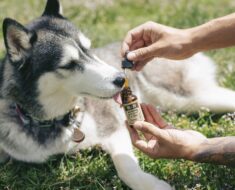Yogurt, a popular and nutritious human snack, often sparks curiosity among dog owners about its suitability for their furry friends. While yogurt boasts a promising nutritional profile with protein, calcium, and probiotics, the question of whether dogs can safely consume it requires a nuanced understanding of canine digestion and the diverse types of yogurt available.
Lactose Intolerance: A Key Consideration
A primary concern when considering yogurt for dogs is lactose intolerance. Similar to some humans, many dogs lack the enzyme lactase needed to digest lactose, the sugar found in milk. Ingesting dairy products can trigger digestive upset in these dogs, resulting in gas, bloating, diarrhea, and other gastrointestinal issues.
However, not all yogurt is created equal. Plain, unsweetened varieties, particularly Greek yogurt, offer a lower lactose content due to the straining process. This reduction in lactose, coupled with a higher protein concentration, makes these options potentially safer for dogs. Plain yogurt can serve as a source of essential nutrients like calcium, vital for maintaining strong bones, and probiotics, which promote a healthy gut microbiome.
Hidden Dangers in Flavored Yogurts
Before sharing yogurt with your dog, carefully examine the ingredient list. Flavored yogurts often contain artificial sweeteners such as xylitol, which is highly toxic to dogs and can lead to severe health complications, including liver failure and even death. Additionally, added sugars present in many yogurts offer no nutritional value and can contribute to weight gain and other health problems in dogs.
Consulting Your Veterinarian: The Best Course of Action
While plain, unsweetened yogurt may be tolerated by some dogs in moderation, it’s always recommended to consult your veterinarian before introducing any new food into your dog’s diet. Your vet can assess your dog’s individual health, dietary needs, and potential sensitivities to determine if yogurt is a suitable and safe addition to their diet.
Moderation and Mindfulness
If your veterinarian gives the green light, remember that moderation is key. Even plain yogurt, when consumed in excessive amounts, can lead to digestive problems or unwanted weight gain. Treat yogurt as an occasional snack rather than a daily dietary staple.
The Verdict: Can Dogs Eat Yogurt?
The answer to this question depends on various factors, including your dog’s individual lactose tolerance and the specific type of yogurt offered. Opting for plain, unsweetened varieties and seeking guidance from your veterinarian can help you make informed decisions about incorporating yogurt into your dog’s diet.
Scientific References
- Lactose Intolerance in Dogs: [Link to a veterinary research article on lactose intolerance in dogs]
- Benefits of Probiotics for Dogs: [Link to a study on the positive effects of probiotics on canine gut health]
- Toxicity of Xylitol in Dogs: [Link to a veterinary publication detailing the dangers of xylitol for dogs]
Prioritizing Your Dog’s Well-being
Always remember that your dog’s health and safety should be your top priority. By making informed choices based on your veterinarian’s recommendations, you can ensure that your canine companion enjoys a long, happy, and healthy life.





